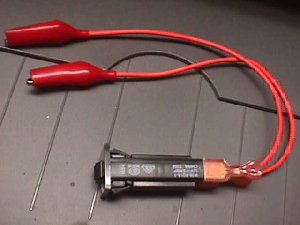|
I have heard this countless times & continue to hear it almost daily, paraphrased... "I've used a whole box of fuses & they just keep blowing right away." That's what they are suppose to do. They are there for over-current protection & if one blows out it is because there is a short of some kind that you have to correct before replacing the fuse. I'm guessing this comes from the old type household line fuses that would blow when you overloaded them... plugging in an iron, air conditioner or other appliance & as soon as you unplugged it & replaced the fuse in the fuse box you were good to go again. Well... these protective devices in coin-op work similarly, but instead of unplugging your appliance that you overloaded with, you have to hunt down the exact component that shorted & overloaded your circuit enough to blow the fuse & replace it before replacing the fuse. After pointing this out quite often I'll hear that the person had thought they found the cause, replaced it & the fuse only to have it blow again. Now back in the day I use to have ops say they took a shortcut & repaired various things... one I always hesitate to mention because it is not only detrimental to your equipment, it very well may be dangerous to your well being... in any event, the shortcut they would take would be to put a bolt or other metal object in the holder with the machine unplugged, step back & plug it in & watch the fireworks. Whatever blew up was the shorted component & after replacing it & the fuse they were good to go. These were the lucky times when things worked out well for them & caused them to continue taking chances with explosive components, flying pieces and possibly igniting a fire. It usually only took one time when they demolished the piece of equipment that they were working on or caused sufficient extra damage to have to send it to the shop for a huge repair bill, for them to quit the shortcut business. Of course, some routinely took shortcuts no matter the cost or consequence. Many would do the same thing using alligator clipped jumpers many times watching them melt & burn open before any explosion could take place. This is NOT the way to handle a blown fuse problem! If you have a fuse that is blown then you have a problem in the circuit that the fuse is protecting & you MUST locate & repair the cause. In the shop this was always an easy task with all the proper equipment on hand, but on service calls many times we were able to effect a repair in the field without the equipment & without a pocketful of fuses by using a simple circuit breaker. This seems like it may be the answer for hobbyist working in a home environment, also. From what I've heard, I know it would save many a fuse & a bundle of money, at the very least.  This all prompted me to order in enough stuff to have my harness maker make up a few of these circuit testers using a circuit breaker. If you think you've corrected your problem & want to check it you simply clip the circuit breaker onto the fuse holder in place of the fuse. If your short is still there it will pop the circuit breaker when you power up & you can go back to the drawing board. A simple push on the circuit breaker button will reset it awaiting your next test. If your short is gone & your circuit breaker held for at least a few minutes then you're able to replace the fuse at that time. Unfortunately, we used up the few hundred circuit breakers we bought in & they wanted more than double for more, so we had to go with a different style to keep the price reasonable. This circuit breaker tester can be found on the Parts Page under the Fuses heading. Happy Gaming... |